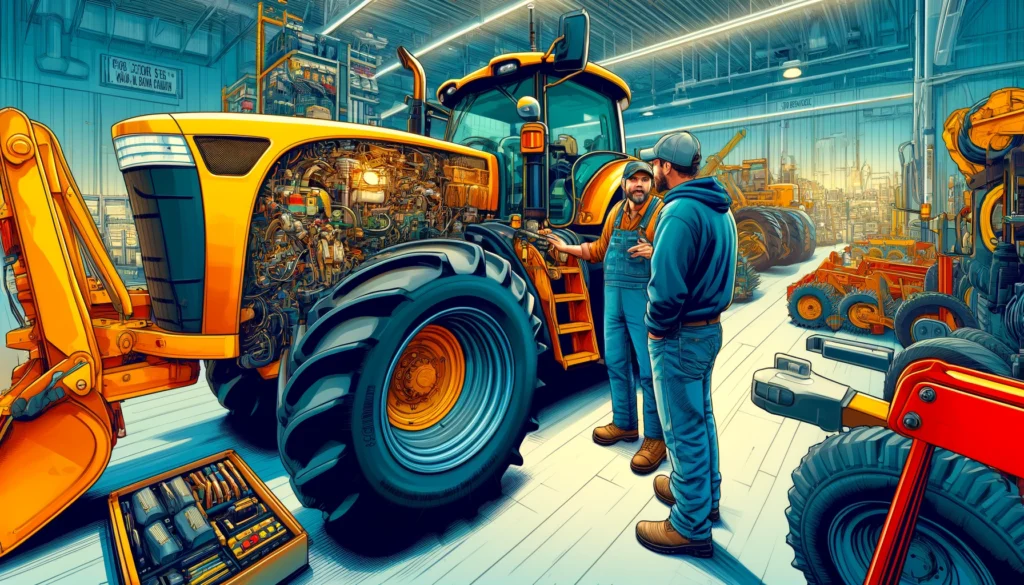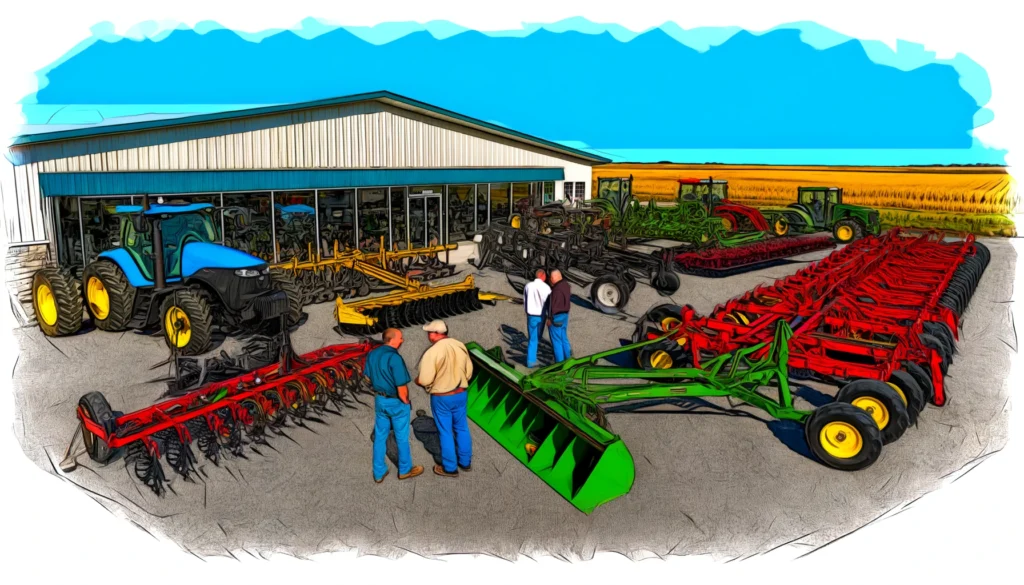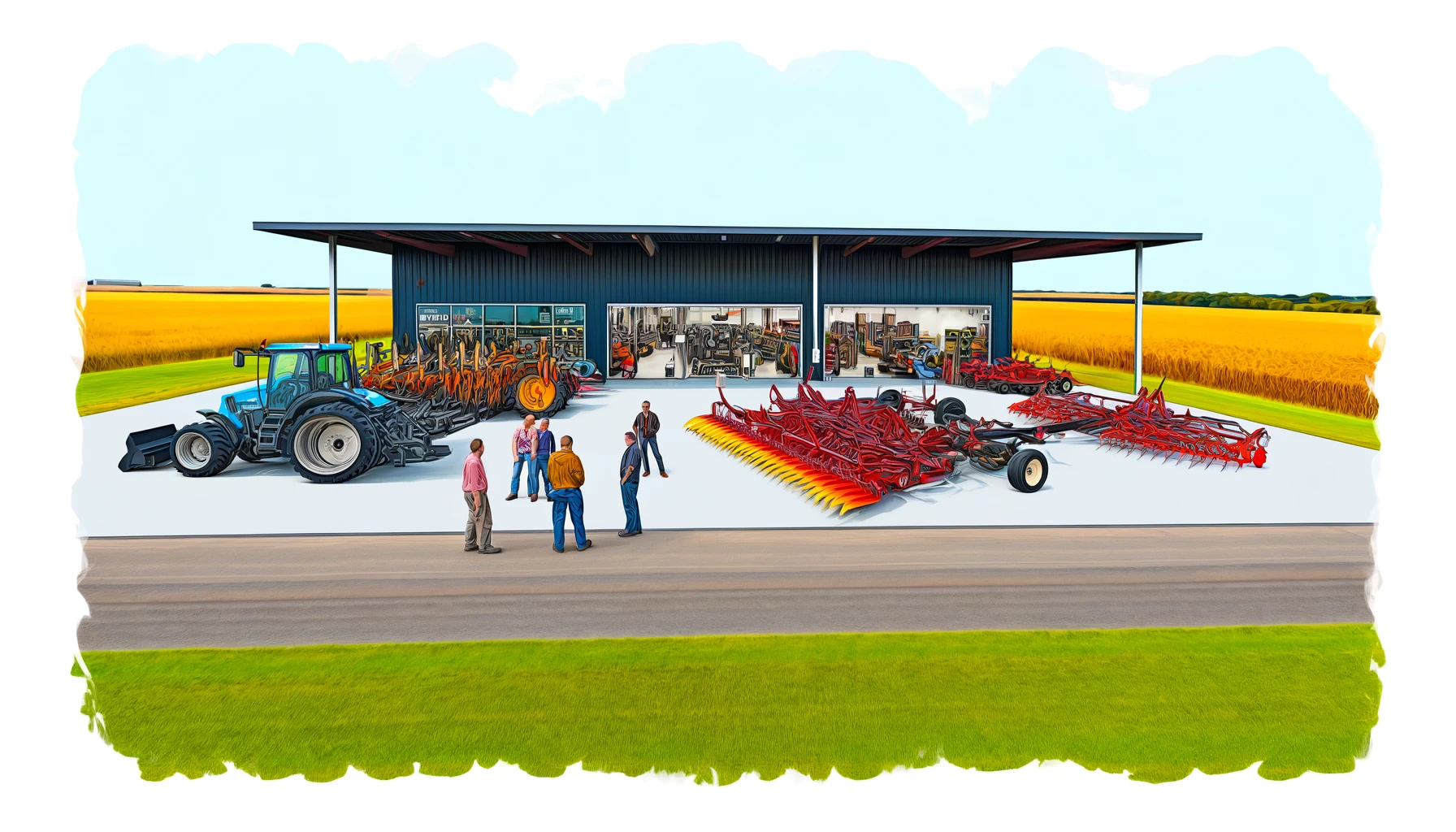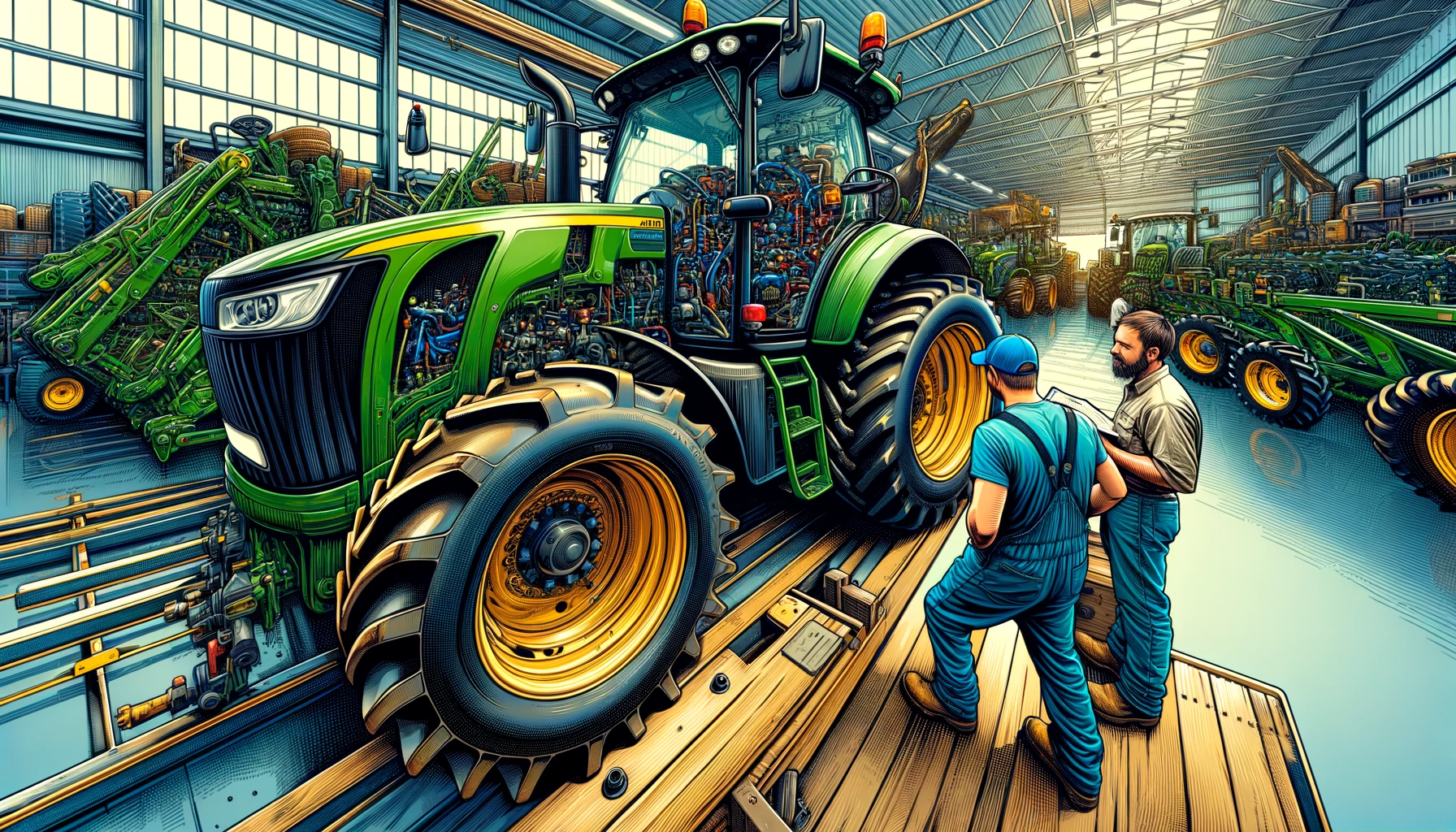When to Rent Agricultural Equipment: A Smart Farmer’s Guide
In the sprawling landscapes where cowboys and farmers reign, the decision to rent agricultural equipment can be as strategic as planning a rodeo showdown. Whether you’re tilling the soil or herding cattle, understanding when to invest in rentals can save you more than just a few pennies. This guide, infused with a touch of farm humor, explores the savvy behind equipment rentals and why it might just be the best move for your ranch or farm.
The Economics of Renting vs. Buying
First off, let’s saddle up and tackle the economic beast. Renting equipment, such as tractors, combines, or milking machines, can often be a financially smarter choice than buying them outright. The reason? Flexibility and cost efficiency. For small to mid-sized operations, or those just starting out, the upfront costs of purchasing new equipment can be as steep as a mountain trail. Renting offers a lower-cost alternative that keeps your cash flow as fluid as a river after a spring thaw.
For deeper insights into agribusiness finances, check out Agribusiness Management.
Seasonal and Specialized Equipment Needs
Consider the seasonal nature of farming—like the fleeting beauty of a rodeo rose, some equipment is only needed for a short period. Planting and harvest seasons come with specific machinery needs that don’t justify year-round ownership costs. Renting these pieces when needed can drastically cut down on your expenses and storage needs.
For those special rodeo-like events in farming—such as specialized dairy operations or large-scale planting operations—having the right tool at the right time can make all the difference. Learn more about specialized dairy equipment at Dairy Insights.

Technological Advancements
Just as a rodeo clown uses agility to outmaneuver bulls, modern farmers can use the latest technology without committing to hefty investments. Renting allows you to utilize the most advanced and efficient machinery as it becomes available. This way, you’re not stuck with outdated equipment that can slow down your operations.
Stay updated with the latest farming technologies and educational resources at Farm Education.
Risk Management and Trial Opportunities
Renting offers a unique opportunity to ‘try before you buy’, reducing the financial risks associated with purchasing expensive equipment that might not meet your long-term needs. It’s like testing a new rodeo horse—better to have a trial run before committing to the full ride.
For current news and trends in farming that could affect your rental decisions, check out Farming News.
Environmental Considerations
In today’s world, where sustainability is as important as a good harvest, renting equipment can also be an environmentally sound decision. It promotes the shared use of resources, reducing overall manufacturing demand and the carbon hoofprint of your farming operations.
Maximizing Farm Efficiency: Strategic Use of Rental Equipment
In the dynamic world of farming and ranching, knowing how to strategically use rental equipment can be as crucial as knowing when to plant and when to harvest. This companion article to our previous guide on when to rent agricultural equipment delves deeper into how to make the most out of renting. Here, we’ll explore practical tips and strategies for integrating rental equipment into your farming operations to maximize efficiency, productivity, and sustainability.
Planning Your Rental Strategy
Before you even consider renting, it’s essential to have a clear plan. Understand your farm’s seasonal peaks and troughs, and identify the periods when specific equipment is needed. This foresight will allow you to schedule rentals in advance, ensuring availability and potentially securing better rates.
For a broader understanding of farming operations and strategic planning, check out Farming Operations.
Choosing the Right Equipment
Not all equipment is created equal, and choosing the right machinery for the job is paramount. It’s important to assess the specific needs of your task or project. Consider factors such as the size of your farm, the type of crops you grow, and your soil conditions. Consulting with experts at rental facilities can also provide insights into the best equipment for your needs.
Learn more about choosing appropriate equipment for ranching at Ranching Equipment.
Training and Safety
Once you have the right equipment lined up, ensuring that you and your team know how to operate it safely and efficiently is next. Many rental companies offer brief training sessions when you rent equipment. Take advantage of these to minimize risks and downtime due to improper use.
For educational resources on equipment use and safety, visit Farm Education.
Integrating Technology
Incorporate technology to track and optimize the use of rental equipment. GPS and farm management software can help you monitor where and how equipment is being used, ensuring it’s being utilized to its fullest potential. This technology can also help in scheduling maintenance and tracking rental periods to avoid late fees.
Maintenance and Upkeep
While the rental company is responsible for maintaining the equipment, ensuring it is used properly and returned in good condition can build a good relationship with the supplier and save on potential fees for damages. Always perform a check before and after use to ensure the equipment is functioning correctly.
For insights into the maintenance and technical aspects, check out the resources at Agribusiness Management.
Cost-Effectiveness Analysis
Continually assess the cost-effectiveness of renting versus other options like purchasing or leasing. Keep detailed records of rental costs and compare them against the expenses of owning equipment, including maintenance, storage, and depreciation. This analysis can help you make more informed decisions about long-term equipment strategies.
Leveraging Rental for Experimentation
Use rentals as an opportunity to experiment with new types of equipment or farming techniques. This can be particularly useful when considering expanding your farm’s operations or switching to different types of crops or livestock.
For more adventurous farming and rodeo techniques, explore Rodeo Techniques.

Summary of Helpful Sources
Enhance your knowledge and strategic planning with these additional resources:
- AgExposition.com: Visit AgExposition
- AgricultureDictionary.com: Explore AgricultureDictionary
- AgricultureDirectory.info: Browse AgricultureDirectory
- DairyExpo.info: Learn at DairyExpo
- FarmDays.info: Check out FarmDays
- FarmExpo.info: Discover FarmExpo
- FarmFestival.info: Join FarmFestival
- FarmShow.eu: Engage with FarmShow EU
- FarmShow.info: Visit FarmShow Info
- WorldAgricultureDirectory.com: Access WorldAgricultureDirectory
In conclusion, renting agricultural equipment can be a wise decision akin to knowing when to hold ’em and when to fold ’em in a game of cowboy poker. It offers financial flexibility, access to advanced technology, risk management, and environmental benefits. So next time you’re faced with a big farming decision, consider if renting might just be your ace in the hole. Whether you’re at the rodeo or on the ranch, making smart choices about your equipment can lead to a more profitable and sustainable operation.

